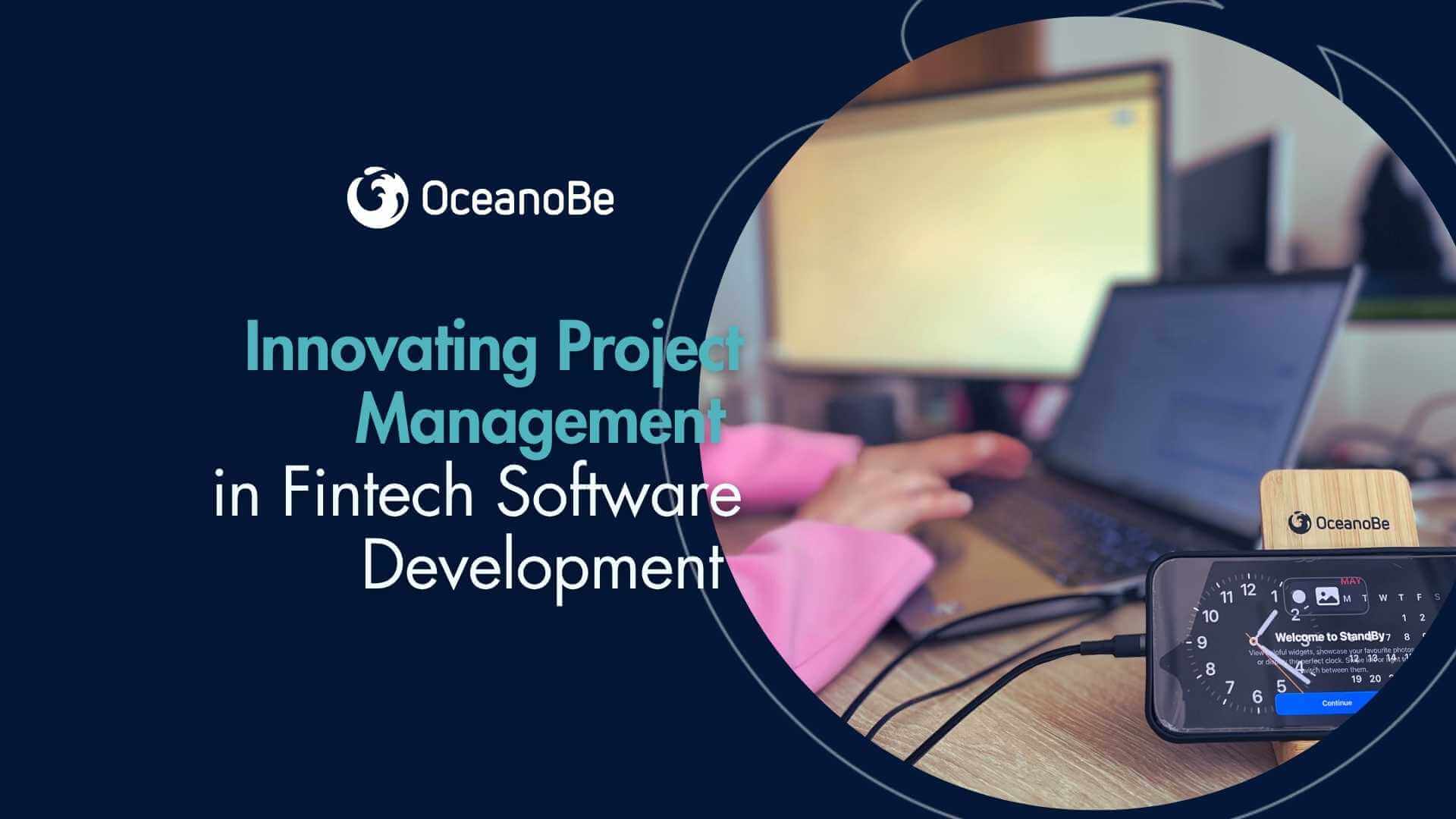Innovating Project Management in Fintech Software Development
The Shift Toward Agile in Fintech
The Shift Toward Agile in Fintech

Agile methods, CI/CD, and cross-functional teams are redefining fintech project management. Learn how to lead successful banking tech projects.
In the high-stakes world of fintech, software development isn't just about writing secure code or deploying APIs—it’s about managing complexity, delivering fast, and adapting to constant regulatory and market shifts. Project management in this field must evolve just as rapidly as the technology itself. At OceanoBe, where we engineer digital solutions for banks, payments, and fintech players, we’ve seen firsthand how agile methodologies, cross-functional collaboration, and robust CI/CD pipelines transform not only how software is built—but how value is delivered.
Traditional project management models like Waterfall simply don’t keep pace with the iterative nature of fintech product development. Regulations shift, customer behavior evolves, and features often need to be adjusted mid-cycle. Agile methodologies—Scrum, Kanban, and hybrid frameworks—allow fintech teams to remain responsive without compromising on quality or compliance.
In an agile environment, work is broken into manageable sprints, with regular reviews and planning cycles that keep development teams aligned with business goals. This approach supports rapid feature iteration, clearer feedback loops, and improved time-to-market—key advantages in a sector where innovation speed can define competitive edge.
One of the most powerful enablers of successful agile adoption is the creation of cross-functional teams. In fintech, this means bringing together backend and frontend developers, QA engineers, DevOps, security experts, compliance advisors, and product managers into tightly integrated units.
This structure minimizes handovers and boosts communication. For instance, a team developing a real-time payments platform can make joint decisions about API architecture, data encryption protocols, and regulatory requirements—without waiting for siloed approvals. It also makes continuous delivery more achievable, as each discipline is represented from day one.
Agile project management must be supported by modern software delivery pipelines. Continuous integration (CI) and continuous deployment (CD) are foundational practices for fintech software teams who need to move fast without sacrificing reliability or compliance.
CI allows developers to merge code frequently into a shared repository, where automated builds and tests validate changes. In a fintech setting, these tests don’t just check for code integrity—they can include compliance checks, security scans, and audit log creation. By integrating tools like Jenkins, GitLab CI/CD, or CircleCI with container orchestration tools like Kubernetes and service meshes like Istio, fintech developers can automate release pipelines with governance in mind.
CD takes it a step further, automating deployment to production or staging environments, often behind feature flags. For highly regulated systems like banking apps or KYC platforms, CD enables staged rollouts, A/B testing, and immediate rollback capabilities—all essential for maintaining trust and uptime.
Project managers in fintech don’t just manage tasks—they manage risk. Every software update or new feature must comply with data protection regulations (e.g., GDPR, PSD2), industry standards (e.g., PCI-DSS), and internal audit policies. Project managers must ensure that compliance is embedded into the development process, not treated as a late-stage hurdle.
This is where agile ceremonies and documentation practices can be adapted for regulated industries. For example, user stories can include compliance acceptance criteria. Sprint reviews can involve stakeholders from legal and compliance departments. Automated tools like SonarQube for code quality, and Vault by HashiCorp for secrets management, also support compliant workflows.
Effective project management in fintech hinges on collaboration. Platforms like Jira, Confluence, Miro, and Slack (or Mattermost in secure environments) are often used to plan, document, and discuss across distributed teams. Git-based source control ensures traceability, while integrated security tools (like Snyk or Checkmarx) bring visibility into third-party risks.
Fintech software development is inherently complex, but smart project management makes it manageable. By leveraging agile methodologies, building cross-functional teams, and embracing automation and continuous integration, fintech companies can innovate confidently and stay ahead in a highly dynamic landscape.
At OceanoBe, we bring deep experience in managing and delivering large-scale, compliant fintech projects. Whether it's integrating real-time payments, building KYC solutions, or modernizing legacy core banking systems—we build with velocity, security, and precision.